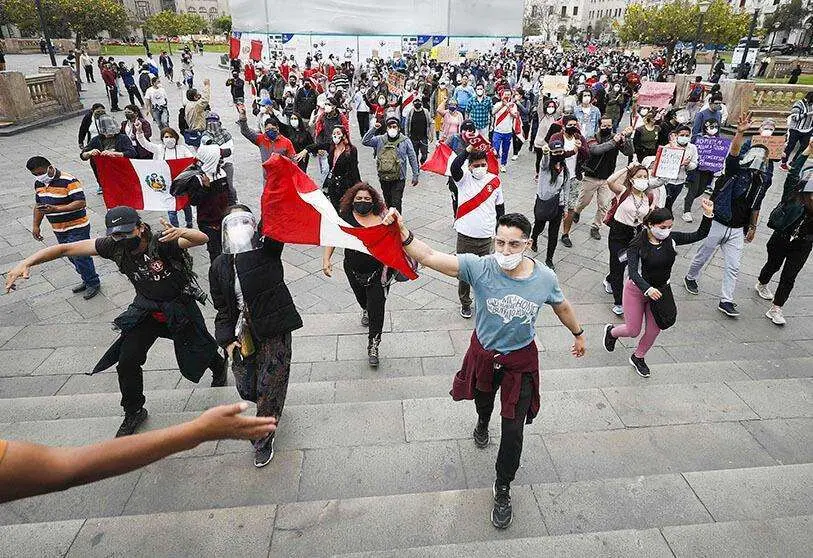Peru will have to choose between two extremisms

A surprising candidate, a schoolteacher, born in the poor region of Cajamarca, paradoxically home to South America's largest gold mine, will embody the left's choice in the second and final round of Peru's presidential elections. Pedro Castillo Terrones, leader of Peru Libre, was the winner in the first round, which was contested by no less than eighteen candidates, seven of them infected or convalescing from COVID-19. Peruvians who gave him less than 20% of the vote chose in him the most extreme of the political left. A seemingly contradictory character, since along with his promises to repeal the current 1993 Constitution, regulate the media, put an end to "trash television" and substantially increase health and education budgets, he flatly refuses to embrace supposed "progressive conquests" such as abortion, homosexual marriage, euthanasia and the gender focus in school education.
Facing him, also surprisingly, will be the leader of Fuerza Popular, Keiko Sofía Fujimori, who, unlike in her two previous election campaigns, this time has decided to reconcile with her father, former president Alberto Fujimori (1990-2000), whom she has promised to release from prison where he is serving a sentence for the murders and corruption that were rampant during his term in office.
Neither of the two finalists, who embody the country's strong polarisation, were the top favourites, according to polls and projections which, despite the panorama of political turmoil, predicted that Peru would choose the path of centrist political options. This has not been the case, which confirms that Peruvians' weariness with mismanagement and corruption has made them swing towards the extremes; it is a sad loss for the country that all the former presidents who are still alive are accused, indicted or convicted of corruption.
The fact that the country will have to choose, on the first Sunday in June, between the two extremes is causing fears and chills in a large part of Peruvian society, whose main concerns at present are focused on mitigating the disasters of a disastrous management of the coronavirus pandemic, and the sharp decline in economic activity, which has dramatically increased poverty levels. At the same time, antagonism has grown between the capital, Lima, where a quarter of the country's 32 million inhabitants live, and the provinces, where there is a feeling that no one will come to their aid if they are not themselves.
The country, which had distinguished itself as one of the most dynamic and buoyant on the continent, has seen crime, the result of a lack of opportunities, and insecurity soar, rekindling the flame of social revanchism. Thus, from very different positions, both Pedro Castillo and Keiko Fujimori advocate a "hard hand": the former to bring to heel those who protect and sustain the profound social inequalities; the latter to revive the nostalgia of her father's "government of law and order", which is credited with both the country's economic take-off and the end of the Shining Path, the bloodiest Maoist guerrilla movement in Latin America. The deterioration of the economic and social situation and the political instability, incapable of building respectable and respected institutions, magnify in the distance the supposedly good deeds of that period and blur in time its great blots.
The enormous atomisation of the parliamentary arc also suggests that no matter who wins next June it will be very difficult, if not impossible, for them to carry out their outlined programme of reforms with the support of an indisputable parliamentary majority. Both Fujimori and Castillo know this, although the latter is freer and more uninhibited in advocating that he will not stop at bars if he has to overthrow the Constitution and thus start his own revolution. Announcements that have caused enough trembling in the centrist and conservative sectors to show that, between the bad and the worse, their preferences would lean towards Keiko Fujimori's hard hand ("demodura" she calls it herself), rather than Pedro Castillo's, especially when the educated Peruvian people can contemplate the Bolivarian "paradise" of Venezuela from very close up, and of which they are also informed first hand by the million exiles who have fled to Peru to escape Chávez's hunger and persecution.

